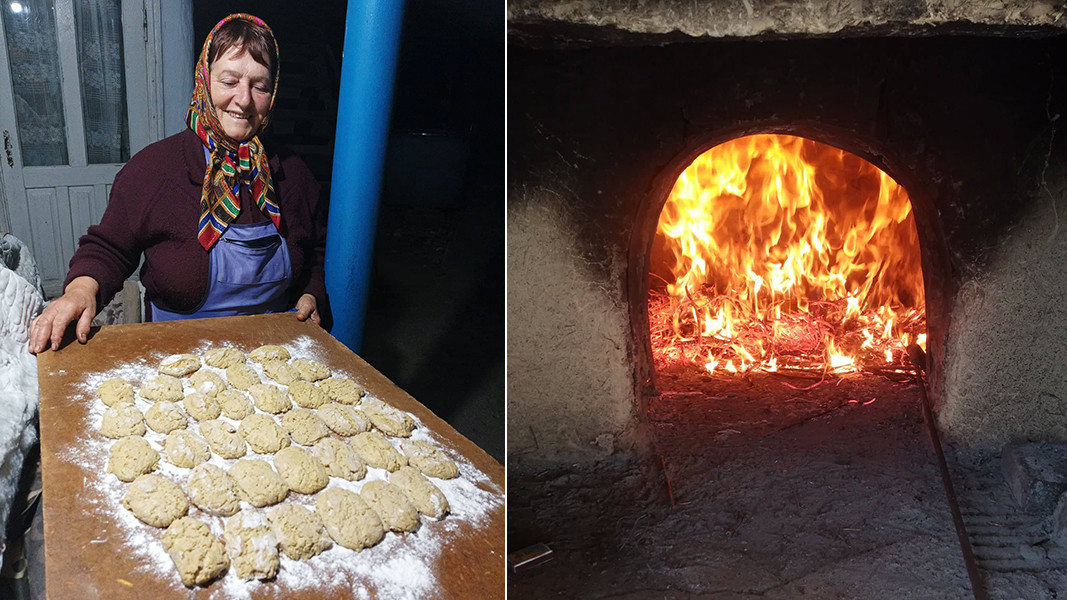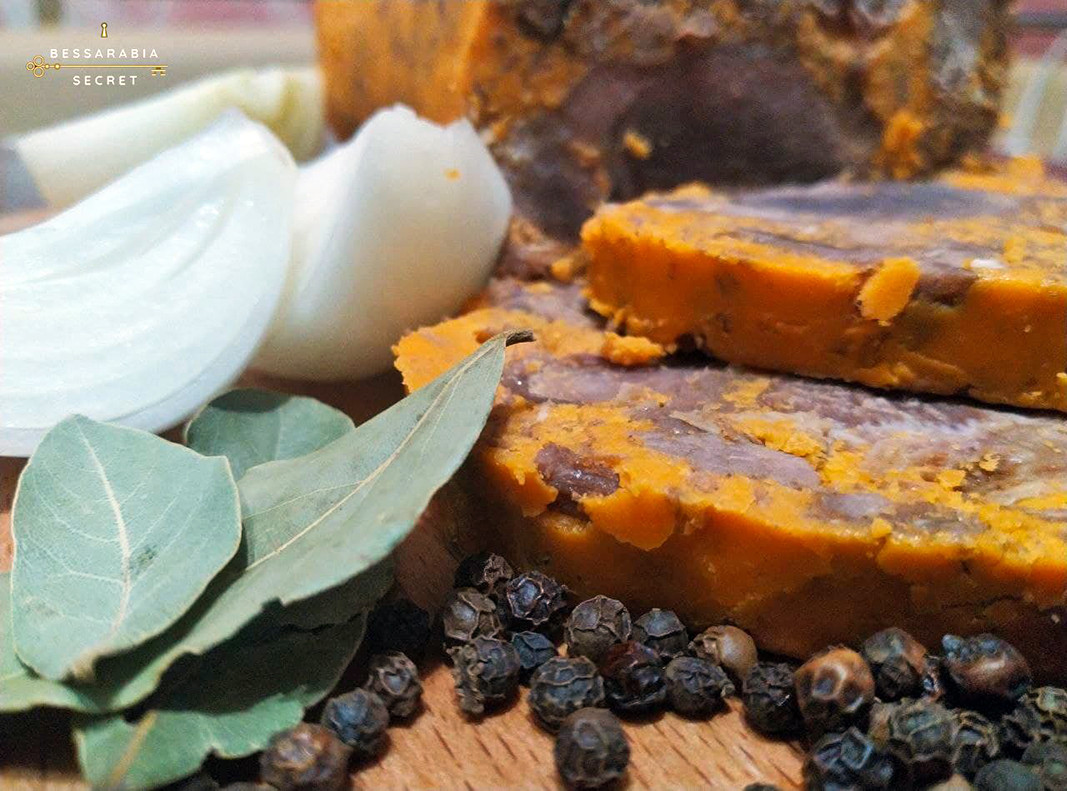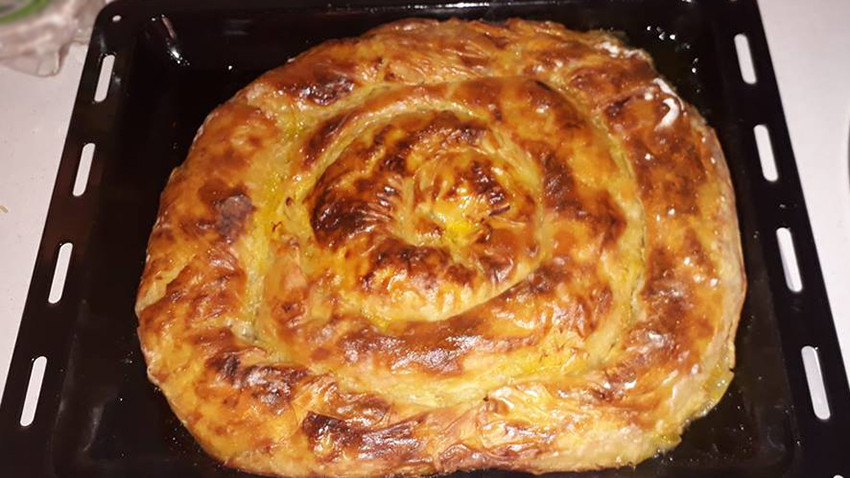 10
10
Villagers of Kubey in Bolhrad, Ukraine, speak a beautiful archaic Bulgarian, they observe Bulgarian traditions and put delicious Bulgarian dishes on their table.
Kubey is also known as the birthplace of the renowned linguist and advocate for the purity of the Bulgarian language, academician Alexander Theodorov-Balan.
Bulgarians came to these parts more than 200 years ago, but to this day they keep a strong connection with their roots, which, of course, also runs through the kitchen. For weddings and other major celebrations, among other dishes, they must serve kavarma (seasoned fried meat), pig trotters and dolma, wrapped in vine leaves in summer and in winter - in cabbage leaves. The recipes have been passed down from generation to generation.

In the warmer months, they like to cook a vitamin-rich vegetable stew - gyuvetch, with onions, potatoes, aubergine, pepper and tomatoes, and on Christmas Eve, the housewives serve bulgur with sushki (dried fruit) or with potatoes and stewed dried fruit, called oshav, of dried apricots and pears. This was told to Radio Bulgaria by Anna Arabadji, who was born and lives in Kubey.
We contacted her to talk us through the ins and outs of Bessarabian cuisine. Her father is Bulgarian and her mother is Gagauz (a Turkic-Orthodox Christian people). Bulgarians and Gagauz have always coexisted in Kubey which was once a large village. Bulgarians numbered up to 6 thousand. Nowadays, however, they are less numerous, as some of them have gone to the city in search of a living. Anna tells the following legend about the name of the village:

"Two brothers lived in these lands. They were very rich. One was called Ku and the other was called Bei. One day the river came up and to keep it from flooding the village, the two brothers wove a wall of wool and vine sticks. So they saved the village from flooding. It was named Kubey in their honour."
Bulgarians in Kubey love to get together on holidays - to talk, have a nice meal, to join in the horo dance, and of course, to sing some songs. "My mother used to sing songs about the Turks and the Bulgarians," Anna Arabadji recalls her mother singing a sad song from the time of the Turkish yoke.
"Turks have marched into the village./ They have taken young maiden Tudorka..."
From generation to generation the ethnic Bulgarians in the village pass on the memory of past traditions and customs. This is how traditional recipes were preserved to this day.
"We, like a bunch of grannies, shout to the young girls: 'Come and learn! I will not be here forever! You need to know," laughs Anna. She explains that in Kubey mutton is their favourite meat and that savoury is the most used spice and red pepper, which they prepare themselves at home.

And here is how the Bulgarians in Kubey cook their favourite Kavarma:

"We prepare it with mutton. We first put a tad of lamb fat to melt. Then we add the meat. We cover it so it stews for a while. We then add wine and let it boil for about an hour. Then we take the lid off, stir, add the spices and let it simmer in an open pot until it's cooked," says Anna.

An integral part of the Bulgarian cuisine in Kubey is the banitsa pie, usually with cheese filling, but in summer they also prepare it with lots of onions, dill and eggs:
"We roll and stretch the phyllo sheets and let them dry a little. Next we put them back on the table. We spread them with lard or margarine, we put cottage cheese and feta mixed on top, so that it is not too salty from the cheese, then we roll them up and put them in the tray. On top we again spread a little lard or margarine and put in the oven for 10-15 minutes to dry the crusts nicely. We mix together some cream and eggs, we pour the mixture over the pie and bake."

Banitsa with lucky charms is part of the festive dinner menu on New Year's Eve. Whoever gets the twig will be successful in farming, and whoever gets the coin - wealth awaits him.

Radio Bulgaria wishes peace and prosperity to this region with beautiful people - keepers of traditions. May good fortune be their constant companion.
English version: Elizabeth Radkova
Photos: private library, Facebook / @Bessarabia Secret
The diplomas from the 11th master class in radio journalism of the Bulgarian National Radio – BNR Academy were awarded at a solemn ceremony on November 14. The lectures and practical classes in modern forms of radio journalism build on the professional..
Italy investigates claims of hunting of people in Sarajevo in the 1990s The prosecutor's office in Milan has launched an investigation into shocking reports of organized "sniper safaris" in Bosnia during the war in..
Albania and Bulgaria have joined forces in the name of one more child being born. In the late afternoon of November 7, the first-ever free reproductive medicine checkups, led by Bulgarian specialists, began in the Albanian town of Korçë — a region..
The Bulgarian minority in Romania marked a significant event with the official opening of the Bulgarian Inn in the village of Izvoarele (Hanul..

+359 2 9336 661
